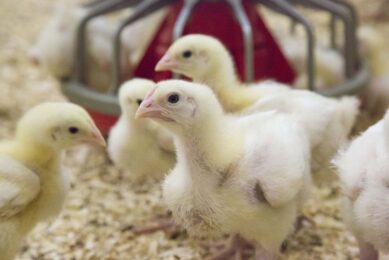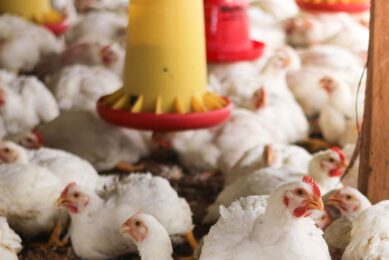Benefits of non-feed withdrawal molting for layers
Molting programs that allow laying hens to eat during the stage where egg production must be stopped could help ease animal welfare concerns associated with induced molting that is traditionally achieved by depriving birds of feed. The non-feed withdrawal approach can also help to ensure that poultry products are free from bacteria, according to recent research.
Induced molting achieved by depriving birds of feed is a common practice for egg producers because it minimises the costs associated with growing replacement pullets and disposing spent flocks.
Achieving induced molting by depriving birds of feed is simple to implement and consistently produces good results in terms of second cycle egg production and egg quality.
In 1995, however, the USDA Animal & Plant Health Inspection Service SE Pilot project reported that the percentage of eggs contaminated with Salmonella enteritidis increased when flocks were molted by feed withdrawal. A subsequently USDA study published in 2000 confirmed that isolation rates of SE were higher in feed-withdrawal molted hens than in non-molted hens in commercial flocks.
Laboratory research showed that feed withdrawal makes hens much more susceptible to colonisation by Salmonella bacteria. It can be concluded from these studies that, in SE positive flocks, molting hens by feed withdrawal can increase SE contamination of the house environment, increase the number of hens infected with SE, and increase the percentage of eggs contaminated with SE, at least for some time. Thus it is possible for induced molting by feed withdrawal to increase risk of SE contaminated eggs entering the human food supply.
Non-feed withdrawal molting does not appear to entail the same risk. There is laboratory evidence that giving hens feed throughout an induced molt protects them from susceptibility to SE infection. Furthermore, a recent study on a commercial farm has affirmed the protective effect of non-feed withdrawal molting against Salmonella colonisation of hens.
This news is reason for producers to be encouraged as they convert to non-feed withdrawal molting. Not only will the egg industry offer greater animal welfare assurance by moving away from induced molting by feed withdrawal, it also should be able to offer its customers a greater assurance of food safety.
Join 31,000+ subscribers
Subscribe to our newsletter to stay updated about all the need-to-know content in the poultry sector, three times a week. Beheer
Beheer








 WP Admin
WP Admin  Bewerk bericht
Bewerk bericht